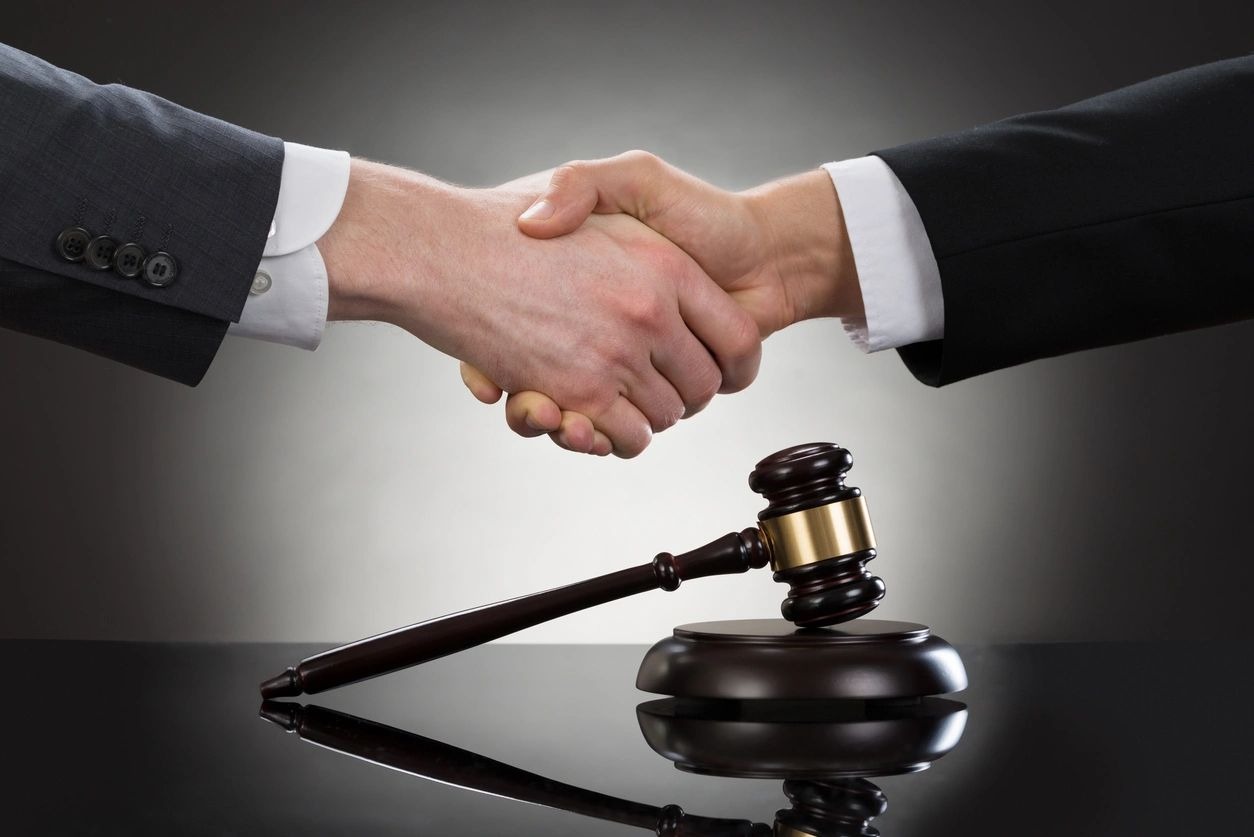Delivering Results
Our principal attorney, John Leo Walter, has thousands of hours of litigation experience in the state of Maryland and is wholly dedicated to obtaining the very best result for each and every client.
Losing your driver’s license (revocation or suspension) will have a momentous impact on your life. John Leo Walter has the skill experience to give complete representation to people arrested or charged with all types of driving offenses and traffic violations: e.g., speeding tickets, driving suspended, driving without a license, and drunk driving (DUI / DWI), etc.
Personal Injury
A tort is an action or inaction, also known as negligence, that causes an injury and thus forms the basis of a civil lawsuit. As a part of civil law, tort law serves a purpose distinct from any concurrent criminal liability. Tort cases are intended to provide compensation to the injured party and to discourage the continuation or repetition of the injury-causing behavior. A court may grant an injunction to stop the problem from continuing, and it may award the victim financial compensation for lost wages, pain and suffering, and medical costs. Torts and personal injury claims may be brought on three different grounds:
This occurs when a person or company fails to prevent an injury by allowing for unsafe conditions or engaging in unsafe behavior.
This applies when the personal injury is the result of reckless, dangerous, or harmful behavior that the defendant recognized as such but continued anyway, resulting in injury to another.
This category applies to manufacturers whose products must meet certain standards of safety.
States are responsible for establishing tort law, both by decisions in specific tort law cases and through legislation.
Tort law consists of a body of rights, responsibilities, and responses that civil courts use in dealing with cases where the plaintiff is injured because of the defendant’s illegal behavior. If defendants are found to have legal liability, they may be obligated to pay for damages to the victim. Such damages may include compensation for medical expenses, lost pay, and emotional trauma.
In order for the plaintiff to win damages, the personal injury attorney must establish the following three elements:
Once these three critical statements are determined to be the case, the court may offer compensation to the injured victim of negligence or intentional misdeed.
Tort law serves four main objectives.
Tort accomplishes its ends by awarding damages to victims who suffer injury through the fault of another.
Criminal Law
Eastern Shore Legal® has a reputation for presenting a strong and aggressive defense for each and every client. It's our primary goal to protect the rights of our clients; we do a thorough initial investigation, keep lines of communication open with the State’s Attorney, hold the police accountable for every allegation, and file complex Motions and Memorandums when appropriate.
Eastern Shore Legal® represents clients throughout the Eastern Shore (Kent, Queen Anne’s, Talbot, Caroline, Dorchester, Wicomico, Somerset) as well as Anne Arundel and Prince George’s Counties We provide legal representation for all criminal cases including, but not limited to, Traffic Citations, Possession CDS Marihuana and Non-Marihuana, DWI & DUI, Possession with the intent to distribute.
We have the knowledge and experience to successfully defend against all types of misdemeanor, felony, and other criminal charges. We represent clients in all administrative, district, and circuit courts. Eastern Shore Legal handles DUI and DWI cases (Transp. Code §21-902(a) and (b)) [with all related traffic offenses usually associated with such charges] as well as:
Losing your driver’s license (revocation or suspension) will have a momentous impact on your life. Eastern Shore Legal® has the skill experience to give complete representation to people arrested or charged with all types of driving offenses and traffic violations: e.g., speeding tickets, driving suspended, driving without a license, and drunk driving (DUI / DWI), etc. We will zealously advocate for our client's position, whatever the charge.
A conviction on any drug-related offense – be it possession, paraphernalia, or possession with the intent to distribute will have life-altering implications. Eastern Shore Legal® handles each criminal charge with the goal of a dismissal; if we don’t get a dismissal – we present the Court with the appropriate mitigating factors in order to get the best result for our clients.
Violent crimes include those such as domestic violence, murder, assault, and battery.
John Leo Walter Esquire is committed to advocating for all clients charged with any type of felony, including arson, armed violence, carjacking, escape, kidnapping, and theft, robbery, and extortion.
Eastern Shore Legal® will provide you with a defense on any and all types of misdemeanors, including criminal property destruction charges, disorderly conduct, obstruction of justice, probation violations, resisting arrest, trespassing, and weapons charges.
What We will do for you.
We will review and research necessary statutes and caselaw, contact the prosecutor, prepare defenses and determine mitigating factors.
Other Legal Services.
You and Eastern Shore Legal may make additional agreements to provide for legal services not covered by the Agreement.
Traffic Violations
Our office helps people with traffic violations, including, but not limited to, driving while under the influence, driving while suspended, and speeding. We provide representation on most Maryland traffic cases. Motor vehicle violations and criminal charges can cost you.
Please call us immediately if you need experienced legal representation in a traffic matter.
We request all potential clients fill out a Traffic Violation Information Sheet.
You also need to bring in, or fax or mail us:
Once the fee is paid, we will prepare a Letter of Representation to the Court, State’s Attorney, and you. We recommend our clients meet with us once prior to the court date.
Medical Malpractice
Medical Malpractice is just another word for negligence; A medical injury,” the term which appears both in § 3-2A-02 (a) and in the effective date clause of the Act, is defined in § 3-2A-01 (f) to mean “injury arising or resulting from the rendering or failure to render health care.” See Oxtoby v. McGowan, 294 Md. 83, 87 (Md. 1983).

Contract Dispute
A contract is basically an agreement between two or more people which creates an obligation to do or not do something.
The agreement creates a legal relationship of rights and duties. If the agreement is broken, then the law provides certain remedies.
There are three factors necessary to create a contract:
One party makes an offer, the second party must accept the offer, and there must be consideration exchanged. Consideration has to be something of value.
Legal answers at FreeAdvice.com’s contract law section If one side fails to stick to his/her/its part of the bargain, there is a breach. A breach occurs when: one party to a contract makes it impossible for the other parties to the contract to perform; a party to the contract does something against the intent of the contract; or a party absolutely refuses to perform the contract.
Not all breaches of contract are necessarily “contract killers,” which would end up in a lawsuit.
Much would depend on whether the breach is “material” or “immaterial” and who the parties are. If the breach is immaterial, you may have the option to: ignore or excuse the defect and continue on as if nothing occurred; point out the problem to the responsible side and give it/she/him an opportunity to fix it, refuse to pay anything more until it is fixed; or, correct the work yourself and deduct the cost from any payment.
What makes sense for you will depend on the facts.
Where the matter is substantial, the advice of an attorney can help you.
a divorce that is granted on the basis of marital misconduct or a finding that the relationship is no longer workable (also known as no-fault divorce). In an absolute divorce, the marriage is completely dissolved, and both parties are legally unmarried again.
a separation of the two parties that terminates cohabitation. In a limited divorce, the marriage is not dissolved, and the parties remain married to one another. A limited divorce is also known as “separation.”
Another way to dissolve a marriage is an annulment.
When an annulment is granted, it treats the marriage as though it never existed. Grounds for annulment include:
Family Law
A divorce is defined as the dissolution of a marriage by judicial decree. There are two types of divorce: absolute divorce and limited divorce.
Real Estate
Real estate law deals with real estate or real property.
This encompasses anything permanently affixed to lands, such as buildings, fences, light fixtures, plumbing fixtures, or other items that would be personal property if not attached. Elements found beneath the land (such as gas, oil, minerals) are also considered permanently attached and are included in the definition of real property.

